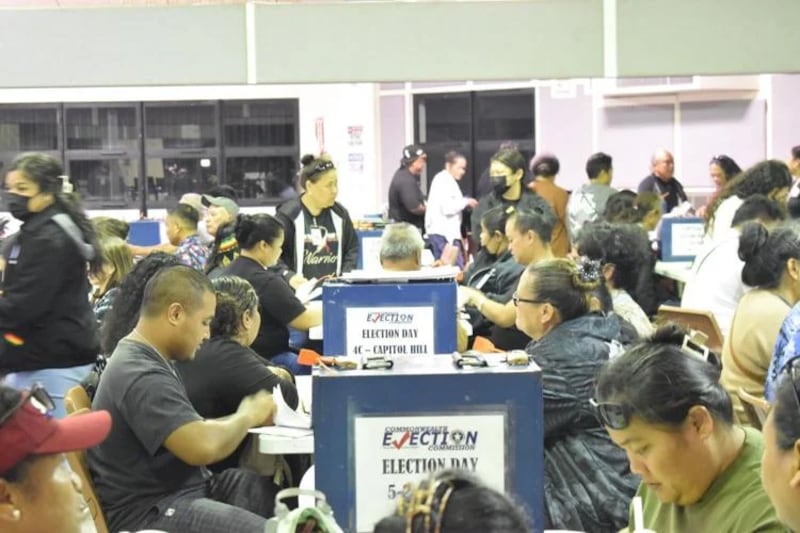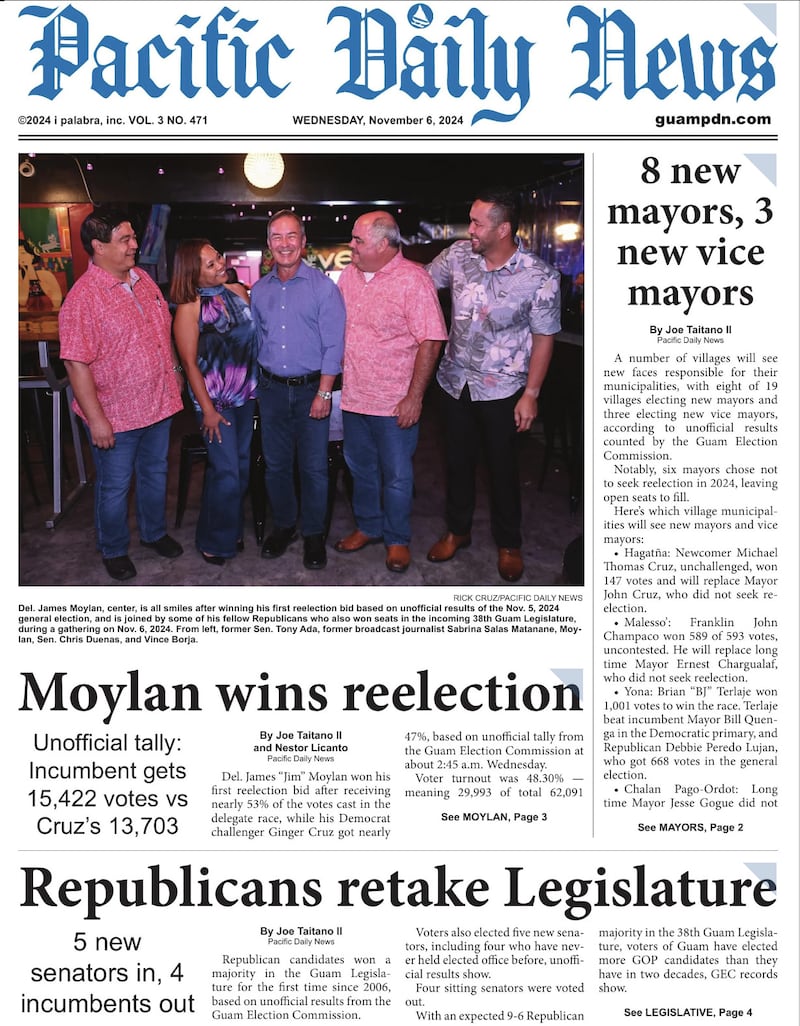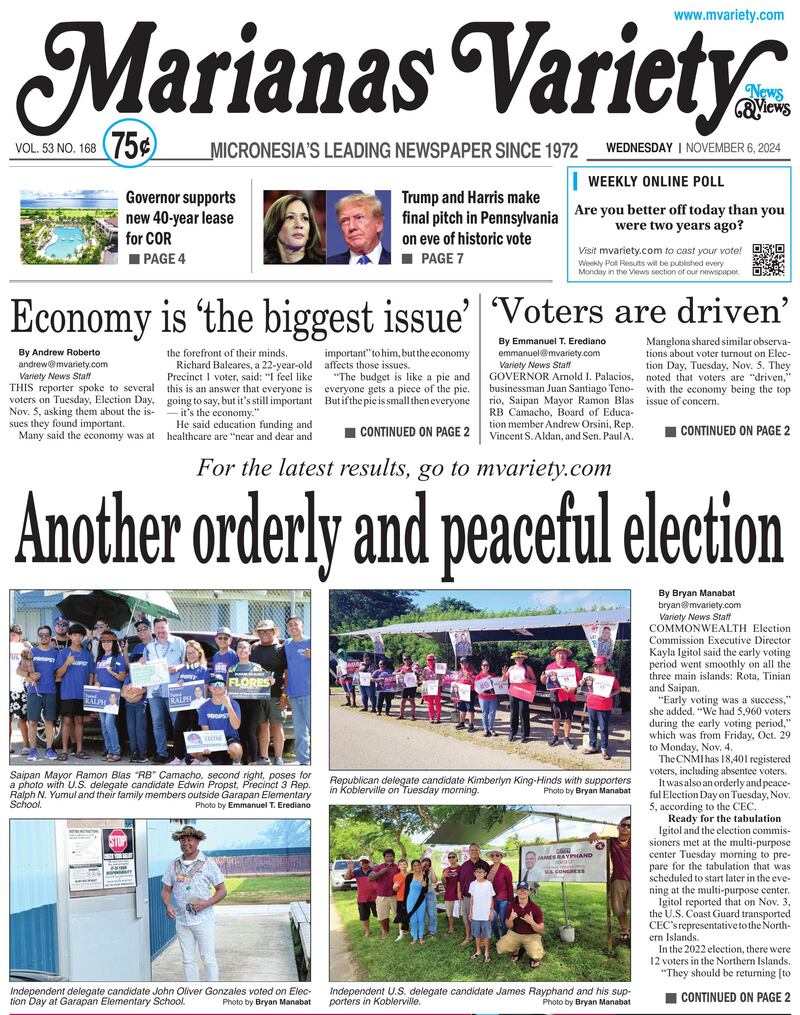American territories in the Pacific are the first and last to vote in-person in the U.S. elections, but about 285,000 citizens who are resident there have no say in who will be president.
Guam is where the U.S. election day begins and is considered a bellwether, with a non-binding, straw poll held for every presidential election since 1980 that has picked the winner eight out of 10 times.
Unofficial figures from the Guam electoral commission show Vice President Kamala Harris won 49.5 percent - 13,510 votes - against 46.2 percent for former president Donald Trump, with a swing away from the Democrats of almost 5 per cent from 2020.
The three territories of Guam, Commonwealth of Northern Mariana Islands and American Samoa do vote for a delegate each in the U.S. House of Representatives, and vote for local legislatures and government positions.
Their representatives in Congress have no voting rights, leaving them largely powerless over federal policy making.
Guam is the only territory to have a non-binding, straw poll for president on election day. At U.S. embassies in the Pacific nations, citizens could lodge their postal votes in the run-up to polling day.
The Micronesian nation of Palau also held general elections with unofficial figures showing incumbent president Surangel Whipps Jr. is set to be comfortably returned against challenger, former president and brother-in-law, Tommy Remengesau Jr.

Guam's Republican incumbent delegate James Moylan retains his seat in Congress after defeating his Democratic challenger Ginger Cruz in a tight race. The territory’s legislature flipped, with Republicans winning the majority of seats for the first time since 2008.
Despite a record number of people enrolled to vote, the 48.3 percent turnout is a new historic low and continues the downward trend from 72 percent in 2014.
The Republicans look set to secure all three Pacific territorial congressional delegates.
In neighboring CNMI, Republican candidate Kimberlyn King-Hinds has taken the territory’s non-voting seat in Congress, with 39.7 percent of the vote, from Democrat Edwin Propst on 33.4 percent, in a field of five candidates.
CMNI’s Election Commission said polling went smoothly with 10,486 voters casting their ballots, the Saipan Tribune reported, representing a turnout of about 57 percent.
American Samoa sits just east of the international dateline and polls opened as they shut on the U.S. mainland. Aumua Amata Coleman Radewagen, the first Republican woman of Samoan descent in Congress, was expected to retain her seat.




